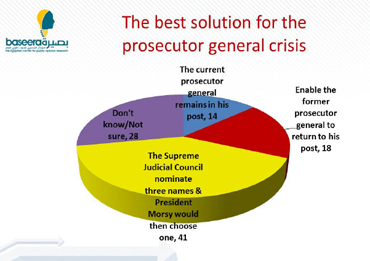What would you do with $200,000 and six months to go? That is the question currently facing Egyptian artist Hala El-Koussy after receiving the Abraaj Capital Art Prize.
El-Koussy – co-founder of the Cairo-based art center Contemporary Image Collective (CIC) – was jointly awarded the prize with Jelle Bouwhuis, curator of Amsterdam’s Stedelijk Museum. The two will work now on an art project that will be presented in the Art Dubai exhibition scheduled for March 2010. Other recipients of the award are artist Marwan Sahmarani of Lebanon and curator Mahita El-Bacha Urieta; and artist Kader Attia of Algeria and curator Laurie Ann Farrell.
At a ceremony held in honor of the winners, Frederic Sicre, executive director of Abraaj Capital, expressed the importance of this award. “Now in its second year, the Abraaj Capital Art Prize signifies not only our continued support of artistic talent across the Middle East, North Africa and South Asia regions, but also our unwavering commitment as a patron of the arts, Sicre said. “The prize is one of the most generous in the world and it empowers young artists to bring their visions and creative gifts to the forefront of both the regional and international art community.
El-Koussy noted in the ceremony that the award marked a rare break for artists in the Middle East. “I am honoured to be the winner of the Abraaj Capital Art Prize. I am extremely pleased that such great opportunities are becoming available to artists from the region, she said.
By far, the award is El-Koussy’s greatest accomplishment of a career that spanned three continents. Her works – which have been exhibited in Europe, China and Mali – center chiefly on the utilization of photography and video as a medium to examine the complexities of communication.
Her 2003 work “(Re) construction attempted to capture, with realistic, photojournalistic eye, the daily life in Cairo: a man waiting at night at an empty bus station or a lone figure walking down a hazy street holding a grocery bag. These images had been purposely staged in order to blur the lines between reality and art. The work also served as powerful critique of photo-journalism in the Middle East, which often works to create a surrealistic impression of the region rather than exploring actual life on the ground.
For the 2005 Istanbul Biennale, El-Koussy created a hybrid photo-video piece called “Peripheral Stories. In it, the viewer is taken on a journey aboard a Cairene microbus. The piece uses both movement and imagery to capture the dynamism of the Egyptian capital. Other notable efforts include a family album filled with tender photos of a non-existent Egyptian family.
El-Koussy has previously pointed out that her work “exists within a cultural system in which the photographic, except in the context of family photography and advertising, is viewed with skepticism, even feared. My practice attempts to coin a personal/public language. At the same time, it remains firmly rooted in the Egyptian society.
“Cairo is peripheral in the understanding of the word as minor or incidental in importance in relevance. In effect, Cairo’s scene is one that has grown considerably in importance in the last 10 years in both the amount and quality of production for Cairo to assume a position at the center of art production in the Middle East and a place where international curators come regularly looking for new ‘discoveries’, El-Koussy stated in 2005.
Born in 1974, El-Koussy took an indirect path to art. She completed her first studies in business administration and economics. After flirting with the corporate world, she began to self-study photography. In 1998, she became a full-time photographer, supporting her artistic efforts by working in commercial photography and dabbling later with advertising. She has also worked as a part-time photography teacher at the American University in Cairo.
In 2002, she earned an MA degree in image and communication from Goldsmiths College, University of London. Currently she splits her time between Amsterdam and Cairo, the focus and subject of much of her work.
Dubai-based Abraaj Captial is the biggest private equity group in a region it describes somewhat awkwardly as “MENASA, consisting of the Middle East, North Africa and South Asia. The prize arrives at a time when most corporations around the world are cutting back on their social and development projects.
The development of this prize also highlights efforts by the United Arab Emirates to turn the Dubai-Abu Dhabi Axis into a regional center for the arts. In addition to high profile art events like Art Dubai, the Emirates are developing world class art museums as well.
The Guggenheim Museum, which pioneered the internationalization of art museums, is planning to construct a museum in Abu Dhabi. The museum has tapped Los Angeles based architect Franky Gehry to design what will be its largest franchise. The Paris-based Louvre Museum has also announced plans for a franchise in Abu Dhabi. Both projects are slated to be completed within the next decade.

